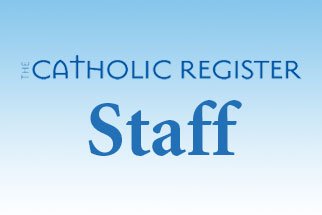Letters to the Editor: January 27, 2019
End all persecution
Re: Persecution hits close to home (Jan. 13):
Bob Brehl states “we can go on and on about the persecutions of Christians around the world,” then abruptly switches to a story from The New York Times which discusses the homosexual individual from a Catholic San Diego parish who was harassed. Am I the only one who sees a disconnect?
Readers Speak Out: January 13, 2019
Lack of respect
Re: Van Hee launches a constitutional challenge of bubble zone law (Dec. 2):
Thank you for the good coverage of pro-life hero Fr. Tony Van Hee.
The undemocratic bubble-zone law, in effect forbidding helpful outreach to pregnant women seeking an abortion, really needs to be challenged. But I have one question about the headline in The Register, in reference to Fr. Tony Van Hee as simply “Van Hee.” This sounds cold and disrespectful.
I am aware it is standard practice in the media to refer to people in headlines by only their surnames, and not their titles. But might not this lack of respect also tie into society’s disrespect of human life, and even God Himself? Just musing.
Yvonne Dienesch,
Eganville, Ont.
Two Windsor priests dismissed after abuse investigations
Two priests in Windsor, Ont., have been removed from their duties after separate investigations into allegations of sexual abuse.
Readers Speak Out: December 30 – January 6, 2019
Blame the culture
I salute St. Michael’s College School for their deft handling of the sexual bullying scandal. The alacrity and transparency displayed should be used as a template by all Catholic institutions.
Christmas Drawing Contest 2018 Winners
The young artists who enter The Catholic Register’s annual Christmas drawing contest express themselves in many artistic forms.
Seventh teen arrested in sexual assault investigation at St. Michael’s College School
A seventh teen has been arrested in connection with an investigation into sexual assaults at Toronto’s St. Michael’s College School.
The Register Archive: The beauty of Bethlehem never ceases
Bethlehem has seen many changes this past century, much of it due to the effects of war and an ever dwindling Christian population — but its drawing power never ceases, especially at this time of year. The grotto of the Church of the Nativity is the destination for many — the birthplace of Christ. It was the same 99 years ago, as reported in The Catholic Register of Dec. 25, 1919:
Live Christmas as revelation of Light, Bishop Gendron says
The following is the Christmas message released by Bishop Lionel Gendron, Bishop of Saint-Jean-Longueuil and president of the Canadian Conference of Catholic Bishops.
Readers Speak Out: December 16, 2018
Hopes dashed
I was filled with hope when I read that the federal government plans to drop the contentious anti-abortion test for summer job funding. But on further reading, my hopes were dashed.
In order to receive summer-job funding for students, groups no longer have to attest to supporting reproductive rights, but the new wording is just as restrictive and just as vile. Applicants must declare they won’t work to infringe on any Canadian legal rights.
Keep in mind that Canada has no laws on abortion. Abortion is not illegal but there are no laws or statutes giving women the legal right to kill their unborn child.
Other changes still deny pro-life groups from accessing summer-job funding. Any project or summer job that tries to “restrict access for a woman’s ability to access sexual or reproductive health services” (a euphemism for abortion) will be disqualified.
I see this as a ploy to divide faith-based groups from pro-life groups. Trudeau and the Liberals are concerned about public opinion before the next election. This is just a way to appease faith groups until the election. Then, should the Liberals win, we can expect the full weight of government to come down on faith groups.
Margaret Mountain,
North Gower, Ont.
The Register Archive: Church can still bask in the moonlight
Canada’s David Saint-Jacques joined the exclusive club of space explorers when he blasted off to the International Space Station on Dec. 3, almost 46 years after NASA ended the Apollo program that put men on the moon. On Dec. 19, 1972, the last Apollo mission ended with the splashdown of the Apollo 17 capsule. It was an historic achievement, though by this time — after five previous moon landings in three years — the excitement of moon landings was waning. The last moon mission, however, held a deeper meaning for Fr. Harold O’Neill, who was a professor of dogmatic theology at St. Augustine’s Seminary in Toronto. At the time he wrote this for The Register, he was studying at the University of Regensburg in West Germany, where he drew inspiration from a lecture by Professor Joseph Ratzinger, who later became Pope Benedict XVI.


